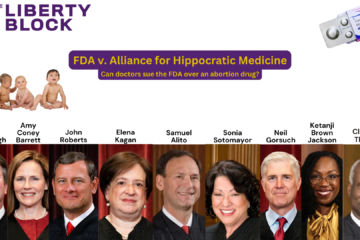UPDATE: This bill has failed to pass into law.
A bill proposed by four Democrats for the 2020 session would place massive new regulations on music therapists. Currently, the New Hampshire government does not regulate music therapists. The Certification Board For Music Therapists is a private organization that has been accredited by the National Commission for Certifying Agencies since 1986. The board accredits music therapists from all over the US when they can prove that they are competent in the practice. Patients and consumers could choose whether to seek treatment from a therapist certified by the CBMT, by another organization, or a less costly therapist who is not officially certified. Shouldn’t we all have that choice?

The authors of HB1286 believe that it is both their duty and within their power to “…protect the public from the practice of music therapy by unqualified individuals.” Simply put, it is not their duty, it should not be within their power, and it is not necessary. Only eight US states currently force music therapists to obtain licenses before working.
The bill describes what is legally recognized as music therapy, saying that it “…may include music improvisation, receptive music listening, song writing, lyric discussion, music and imagery, singing, music performance, learning through music, music combined with other arts, music-assisted relaxation, music-based patient education, electronic music technology, adapted music intervention and movement to music”, among other things.
The politicians outline how a person could apply for a state license to legally practice music therapy. Despite 33 board certified music therapists already being available in New Hampshire, the four lawmakers want the government to take the choice away from consumers and the livelihood away from the providers. In order to apply, each music therapist must fulfill all of the following requirements:
(a) The applicant is at least 18 years of age.
(b) The applicant holds a bachelor’s degree or higher in music therapy, or its equivalent, from a program approved by the American Music Therapy Association or any successor organization within an accredited college or university.
(c) The applicant successfully completes a minimum of 1,200 hours of clinical training, with at least 180 hours in pre-internship experiences and at least 900 hours in internship experiences, provided that the internship is approved by an academic institution, the American Music Therapy Association, or any successor organization, or both.
(d) The applicant is in good standing based on a review of the applicant’s music therapy licensure history in other jurisdictions, including a review of any alleged misconduct or neglect in the practice of music therapy on the part of the applicant.
(e) The applicant provides proof of passing the examination for board certification offered by the Certification Board for Music Therapists or any successor organization or provides proof of being transitioned into board certification, and provides proof that the applicant is currently a board certified music therapist.
Applying for this license also seems to involve a fee. The bill states that “The board shall issue a license to an applicant for a music therapy license when such applicant has completed and submitted an application upon a form and in such manner as the executive director prescribes, accompanied by applicable fees, and evidence satisfactory to the board that…” The bill seems to mention that the biennial fee for all allied health professionals is $110, but it seems to leave the cost of the fee up to the executive director of the office of professional licensure and certification.
In order to regulate the newly licensed industry, a new 5-member board would be created, funded by your taxes.
The bill adds a section to RSA 326, which governs occupational licenses. The punishment for violating those license laws (practicing without a license) is a misdemeanor. In general, misdemeanors in New Hampshire can carry a 1-year prison sentence. HB1286 states that “Although prohibited, there is no penalty established for the practice of music therapy without a license.” Of course, this bill could be amended to remove the prior sentence before passing into law. Additionally, this bill could become law during this session and then amended to add penalties next session.
Those who refuse to obtain a state license or who practice anything that could be considered ‘music therapy’ without being licensed by the government may come to regret their decision once penalties are put into place for violating this new law. The bill states that:
I. No person without a license as a music therapist shall use the title “music therapist” or similar title or practice music therapy.
As we mentioned in the article about the new locksmith licensure bill, this type of regulation opens up a tyrannical can of worms in regards to free speech violations. This bill essentially makes it a crime to say the words ‘music therapist’ unless you are licensed by the government.
The most highly trained and most skilled pre-hospital providers in the US are paramedics. In order to become a paramedic, one needs to pass an EMT program, which takes around 4-6 months. After the EMT program, the provider attends a 12 month program which includes around 600 clinical hours which is divided between paramedic ambulances and various types of hospital units. Paramedics are trusted to place airways into the trachea, shock patients manually, place needles into veins and bones, give many potent IV medications, utilize ventilators and IV pumps, place chest tubes, perform tracheotomies, deliver babies, and they often do much more, depending on local protocols. If you believe that people who help relieve stress through the wonderful joy of music should be forced by politicians and their armed agents to undergo more training than paramedics, make sure to email your legislators and the House Executive Depts. & Education Committee to tell them to support the bill. If you believe that consumers and patients should be free to choose their therapists and that workers should be free to earn a living, tell your legislators to oppose HB1286. Email the House EDA committee here to let them know your thoughts on the bill.
This article does not necessarily reflect the opinions of The Liberty Block or any of its members. We welcome all forms of serious feedback and debate.


